Consider a hospital battling a flu outbreak. Efficient healthcare begins with effective data management. With accurate, timely, and accessible information, the hospital can identify trends, isolate affected patients, and create actionable plans to contain the virus. These capabilities are necessary for the facility to understand the outbreak, putting patients and staff at risk.
Healthcare data management ensures organizations have the appropriate data to mitigate crises and improve operations. This guide will illustrate the importance of healthcare data management and offer valuable insights to allow healthcare organizations to use data management solutions.
Azulity’s healthcare master data management services can help organizations achieve their goals by streamlining data management processes and improving data accuracy. With this solution, healthcare organizations can establish a single source of truth for their data, enabling them to respond to crises and improve overall operations swiftly.
What Is Healthcare Data Management


Healthcare Data Management (HDM) is the processing of managing the lifecycle of health data. Data is created, stored, organized, processed, archived, and destroyed. In addition, data is kept secure and protected to maintain a strict level of confidentiality and integrity and is only available to those who need access. Healthcare database management systems can do all this and more, such as analyzing disparate and diverse datasets from multiple internal and external sources to deliver operational and decision support to applications, devices, and people.
Digital Data in Healthcare Data Management
Healthcare Data Management is increasingly about digital data, on-premises, in the cloud, and out at the network’s edge for mobile and telehealth and medical devices and instrumentation. There is structured and unstructured data that has to be managed. Some organizations are starting to utilize a data warehouse for the data volumes that must be managed and analyzed in a Healthcare Data Management System (HDMS). These systems also include a Clinical Decision Support System (CDSS) that takes advantage of all the data stored to automate interpretation, care plans, and treatments for patients.
What’s Included in Healthcare Data Management?
Healthcare Data Management, also sometimes referred to as Digital Healthcare Data Management, is not limited to electronic health or medical records (EHRs or EMRs) but includes population health records, other clinical records for drug efficacy, or even medical instrumentation logs and RF-ID tags on various physical assets from beds to bedpans necessary for the supply chain management. The data management also includes all the operational and financial records spanning healthcare providers and payers, such as national and state healthcare programs like Medicare and Medicaid and private insurers.
Benefits of Using Healthcare Data Management


Crafting a Holistic View of Patients to Personalize Care
Healthcare data management provides organizations with an effective way to develop a well-rounded perspective of patients, consumers, and households to create personalized and effective interactions. For instance, hospitals like Cleveland Clinic have used data integration platforms to compile patient information from various touchpoints, including medical records, lifestyle data, and genetic history. This holistic data approach allows them to customize treatments, enhancing patient satisfaction and health outcomes.
Better Organize and Access Data from All Sources
Another benefit of good data management in healthcare is organizing and integrating relevant information from all sources for better accessibility. Health information exchanges (HIEs) such as Epic and Cerner incorporate electronic health records (EHRs) across various providers, allowing authorized users to quickly access a patient’s complete medical history. This organization minimizes redundancies in care and ensures timely information access for critical cases.
Monitor Current Health Trends and Predict Future Trends
Healthcare data management can also help organizations keep up with current health trends and predict upcoming trends. For example, the Mayo Clinic uses data analytics tools to track public health trends, such as seasonal flu outbreaks, by analyzing real-time data from ER visits, lab results, and other sources. This enables proactive resource allocation and preventive care to meet surges in demand.
Make More Informed Business Decisions
Data management in healthcare also allows organizations to access data insights that positively inform business decisions. For instance, Kaiser Permanente applies data analytics to understand which treatments offer the best outcomes for specific patient populations, guiding investment in treatments that maximize efficiency and improve patient care.
Improve Understanding of Provider Activities
Effective healthcare data management also helps organizations understand healthcare providers’ activities so they can align them with organizational goals. For example, Mount Sinai Health System developed a provider-performance tracking tool that aligns provider activities with system-wide goals, such as reducing readmission rates. By monitoring metrics like patient satisfaction and treatment outcomes, they create incentives for high-quality care.
Protect Data Against Damage or Loss
Another critical benefit of healthcare data management is protecting your system from data damage or losses. The Johns Hopkins Hospital employs cybersecurity frameworks and redundant data storage solutions to protect patient data. This includes regular backups, end-to-end encryption, and continuous monitoring to prevent data breaches and ensure data integrity and privacy.
Azulity specializes in healthcare master data management, bringing proven expertise in implementing healthcare data solutions and credentialing across the US. Our comprehensive platform ensures consistent patient, provider, location, and claims data synchronization across all systems and departments. Key features include healthcare MDM, provider MDM, reference data management, credentialing, and provider enrollment. We serve healthcare technology leaders – from CIOs and CDOs to VPs of data platforms and credentialing – helping them eliminate the costly problems of fragmented data systems. Book a call to learn more about our healthcare master data management services today!
Related Reading
- Data Quality Management in Healthcare
- How to Secure Patient Data
- Master Data Management Solutions
- Patient Data Management System
Best Practices For Using Healthcare Data Management


Prioritizing Governance and Quality: The Foundation of Efficient Healthcare Data Management
Data governance is the backbone of any successful healthcare data management system. Data governance offers a structured approach to data management, enabling organizations to handle data consistently and correctly. With adequate governance, healthcare providers can enhance patient trust and satisfaction, streamline operations, and optimize data-related decision-making processes. Data quality is equally important, guaranteeing accuracy, reliability, and readiness for use in crucial healthcare decisions.
Organizations must consider several factors when implementing data governance and quality assurance measures. These include setting clear roles and responsibilities, defining data standards, and ensuring continuous quality checks. To improve governance, organizations should embrace transparency, establish rigorous data access policies, and foster a culture of data stewardship. This promotes accountability, encourages the efficient use of data, and ensures that the data serves its intended purpose.
Facilitating Interoperability and Data Exchange: Breaking Down Silos in Healthcare Data Management
Interoperability and data exchange constitute another crucial element of healthcare data management, emphasizing the smooth interaction between different data management systems. In the healthcare context, the ability to exchange and interpret data across various platforms dramatically enhances the delivery of patient care. Interoperability enables the swift and accurate exchange of data, eradicating information silos and enabling a comprehensive view of patient health. This, in turn, leads to more effectively coordinated care, enhanced patient safety, and increased operational efficiencies within healthcare organizations. Achieving efficient data exchange necessitates the implementation of standardized data formats and protocols.
Additionally, it requires utilizing enterprise data management solutions capable of smoothly integrating with diverse systems. To overcome interoperability challenges, healthcare organizations must comprehensively understand the technology, provide appropriate staff training, and foster effective collaboration with technology providers. Compliance with standards set by data exchange frameworks and regulatory bodies is also vital in ensuring smooth interoperability and secure data exchange.
By prioritizing interoperability and facilitating smooth data exchange, healthcare providers can optimize care coordination, enhance patient safety, and streamline processes across different systems. This promotes effective communication and collaboration among healthcare professionals, ultimately improving healthcare outcomes and better patient experiences.
Securing Sensitive Information: Data Security and Privacy in Healthcare Data Management
In the healthcare industry, data security and privacy are paramount. Data management services are crucial in safeguarding sensitive patient information while enabling its use. With the prevalence of cyber threats, healthcare organizations must prioritize robust security measures, ranging from encryption and multi-factor authentication to intrusion detection systems and regular security audits. In addition to security, privacy measures are equally vital.
Organizations can take steps to uphold privacy by de-identifying personal data, limiting data access, and ensuring consent for data use. To guarantee compliance with data protection laws, healthcare organizations should maintain up-to-date knowledge of relevant regulations and regularly assess their data practices. They should also invest in big data management tools that facilitate compliance.
Building Effective Data Storage and Retrieval Practices: Enhancing Healthcare Data Management Performance
Efficient healthcare data management encompasses robust data storage and retrieval mechanisms that significantly impact the accessibility and usability of health data, ultimately resulting in enhanced patient care and operational efficiency. A well-designed data storage and retrieval framework enables prompt data access, minimizes downtime, and maximizes the effectiveness of the overall data management system.
Healthcare organizations should carefully evaluate scalability, reliability, and cost-effectiveness when choosing a data storage solution. Depending on their specific requirements, they can opt for cloud-based, on-premise, or hybrid storage solutions. Organizations should prioritize well-structured data indexing to optimize data retrieval and ensure information is organized logically. Regular backups are crucial for data preservation and disaster recovery.
Additionally, effective product data management processes should facilitate smooth data search and extraction, allowing healthcare professionals to retrieve relevant information quickly when needed. By adopting efficient data storage and retrieval practices, healthcare organizations can experience improved data availability, streamlined operations, and expedited decision-making processes. Accessible and reliable data allows healthcare providers to make well-informed decisions, offer timely interventions, and contribute to evidence-based medical research, ultimately leading to better patient outcomes and advancing the quality of care in the healthcare industry.
Leveraging Data Analytics and Insights: Transforming Healthcare Data Management into Actionable Intelligence
Data analytics plays a pivotal role in healthcare decision-making, enabling providers to predict patient outcomes, track disease patterns, and measure the effectiveness of treatment plans. To enhance analytics capabilities, healthcare organizations should use advanced analytics tools, train staff in data analysis, and create a culture of data-driven decision-making.
Data management companies often provide resources and tools to support these efforts. Data analytics can significantly improve patient care by identifying at-risk individuals, informing personalized care plans, and tracking patient progress. Furthermore, it can enhance healthcare operations by streamlining workflows, optimizing resource use, and identifying opportunities for improvement.
Related Reading
- Healthcare Provider Data Management
- MDM Implementation
- Reference Data Management
- Healthcare Data Integration
- Healthcare IT Consultants
7 Best Healthcare Data Management Software for All Your Needs
1. Azulity
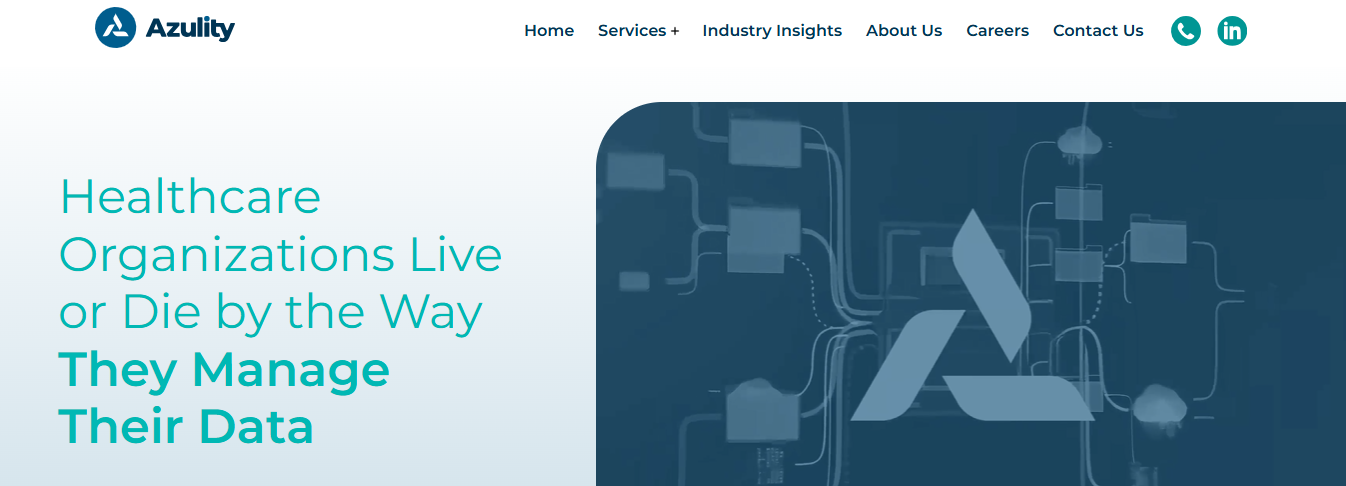

Azulity specializes in healthcare master data management, bringing proven expertise in implementing healthcare data solutions and credentialing across the US. Our comprehensive platform ensures consistent patient, provider, location, and claims data synchronization across all systems and departments. Key features include healthcare MDM, provider MDM, reference data management, credentialing, and provider enrollment.
We serve healthcare technology leaders – from CIOs and CDOs to VPs of data platforms and credentialing – helping them eliminate the costly problems of fragmented data systems. Book a call to learn more about our healthcare master data management services today!
2. Cerner Millennium
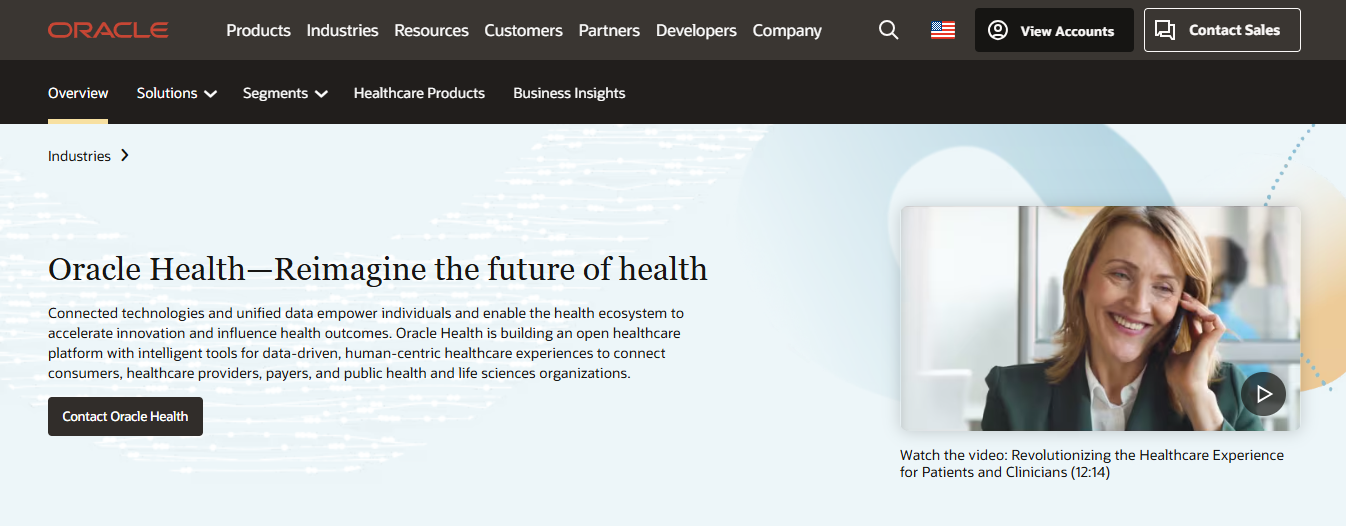

Cerner offers a comprehensive healthcare data management solutions suite, including its flagship platform, Cerner Millennium. This integrated system enables healthcare organizations to efficiently manage patient records, clinical workflows, and administrative tasks. With features like real-time data access and analytics, Cerner Millennium helps improve patient outcomes and operational efficiency.
Pricing
Licensing fees for Cerner Millennium range from $1 million to $5 million for smaller healthcare organizations, with larger institutions potentially paying significantly more. Maintenance and support costs can add 15% to 25% of the initial licensing fee annually.
3. MEDITECH Expanse
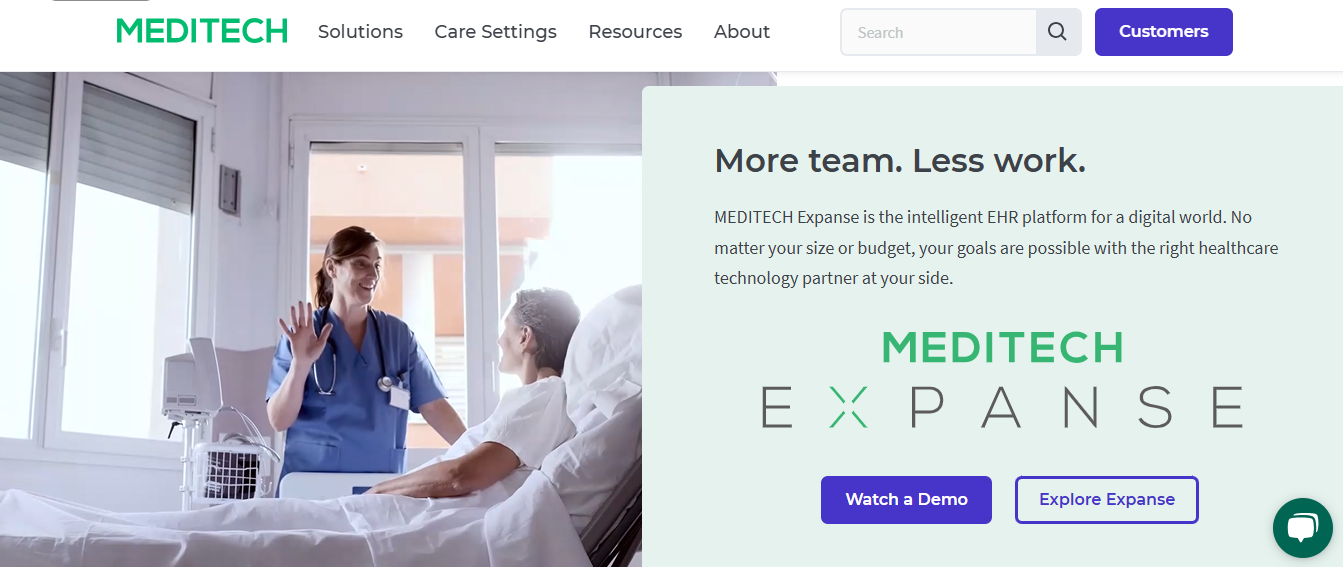

MEDITECH Expanse is a cloud-based EHR solution streamlines healthcare data management and enhances clinical workflows. Its intuitive interface and customizable modules enable healthcare organizations to optimize patient care delivery while ensuring data security and compliance.
Pricing
Subscription fees for MEDITECH Expanse may start at approximately $50,000 to $100,000 per year for smaller healthcare organizations, with larger institutions potentially paying several hundred thousand dollars or more annually. Implementation costs can vary but may range from $100,000 to $500,000.
4. eClinicalWorks
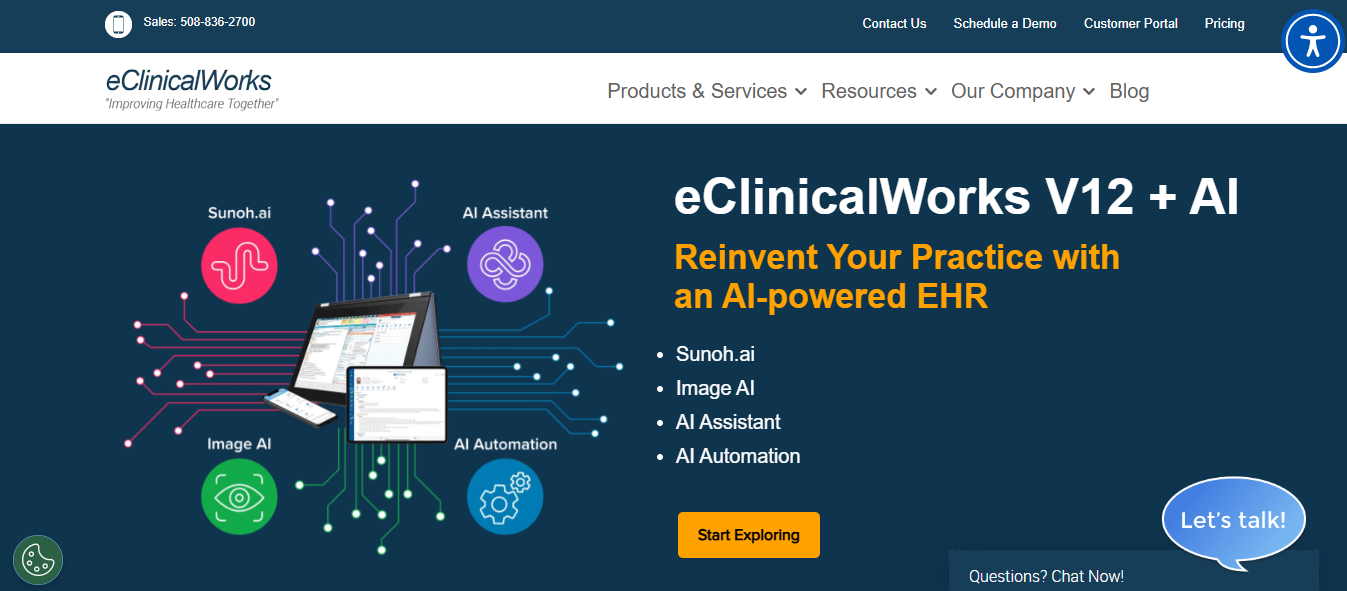

eClinicalWorks offers integrated healthcare IT solutions, including EHR, practice management, and revenue cycle management software. Its healthcare data management capabilities enable providers to streamline documentation, automate workflows, and improve patient engagement through secure online portals.
Pricing
For smaller healthcare organizations, subscription fees for eClinicalWorks may start at approximately $50 to $100 per provider per month, with larger institutions potentially negotiating lower per-provider rates. Additional costs for implementation, training, and support services may apply.
5. InterSystems HealthShare
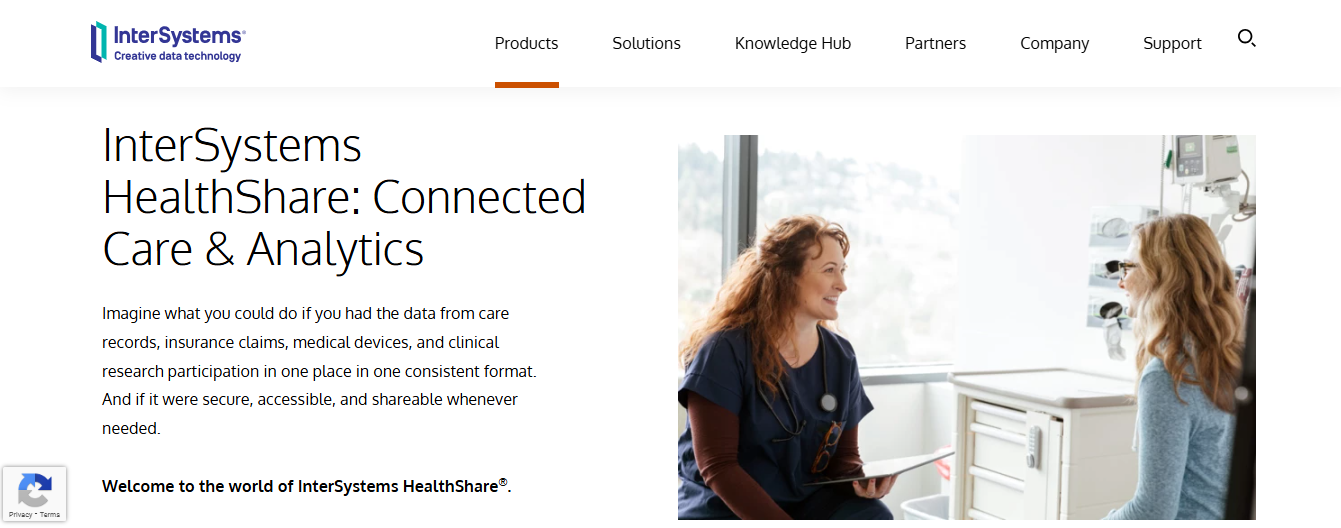

InterSystems HealthShare is a comprehensive health informatics platform that facilitates interoperability, data sharing, and analytics across healthcare systems. It enables healthcare organizations to aggregate, normalize, and exchange data from disparate sources, including electronic health records (EHRs), medical devices, and wearables. HealthShare supports care coordination, population health management, and value-based care initiatives.
Pricing
Pricing for InterSystems HealthShare can start at approximately $200,000 to $500,000 for smaller healthcare organizations, with larger institutions potentially paying several million dollars or more depending on the scope of implementation and additional services required.
6. SAP Healthcare Solutions
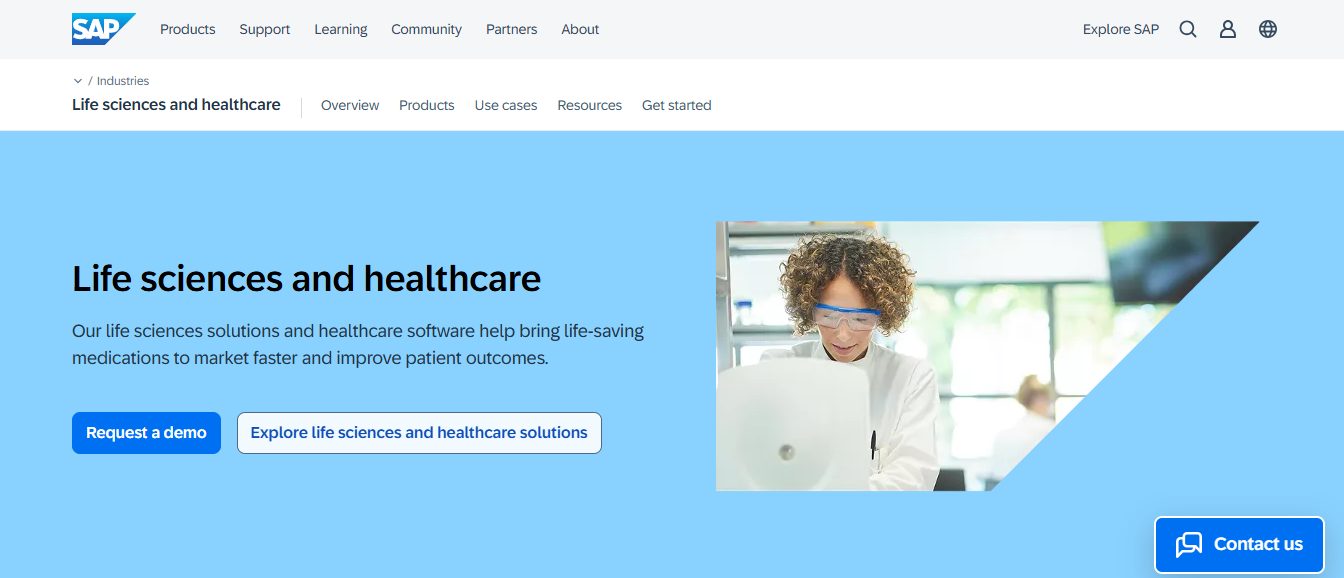

SAP provides healthcare solutions to various healthcare data management needs, including electronic medical records (EMR), health information exchange (HIE), and healthcare analytics. SAP’s healthcare solutions enable organizations to streamline operations, improve patient outcomes, and comply with regulatory requirements by leveraging real-time data insights and predictive analytics.
Pricing
Subscription fees for SAP Healthcare Solutions may start at approximately $50,000 to $100,000 per year for smaller healthcare organizations, with larger institutions potentially paying several hundred thousand dollars or more annually, depending on the modules and services selected.
7. NextGen Healthcare
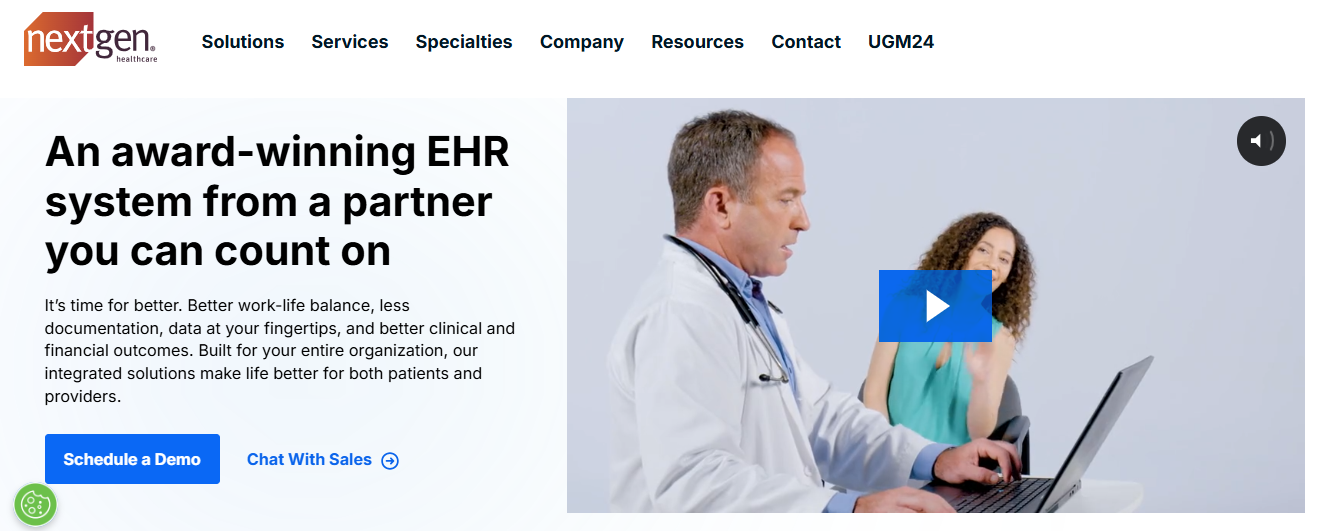

NextGen Healthcare’s EHR and practice management solutions provide organizations with robust healthcare data management tools to enhance clinical efficiency and patient care. With features like interoperability with third-party systems and built-in reporting capabilities, NextGen Healthcare helps healthcare providers achieve better outcomes and improve operational performance.
Pricing
Licensing fees for NextGen Healthcare start at around $500,000 to $1 million for smaller healthcare organizations, with larger institutions potentially paying several million dollars or more. Maintenance and support costs typically range from 15% to 20% of the initial licensing fee annually.
Book a Call to Learn More About Our Healthcare Master Data Management Services
Azulity specializes in healthcare master data management. We help healthcare organizations eliminate the costly problems of fragmented or siloed data. Our healthcare MDM solutions create a trusted, single source of truth for patient, provider, location, and claims data. With our comprehensive platform, you’ll ensure consistent synchronization across all systems and departments.
Key features of our healthcare master data management platform include provider data management, reference data management, credentialing, and provider enrollment. We work with healthcare technology leaders—from CIOs and CDOs to VPs of data platforms and credentialing—to implement our solutions and improve healthcare operations and outcomes.
